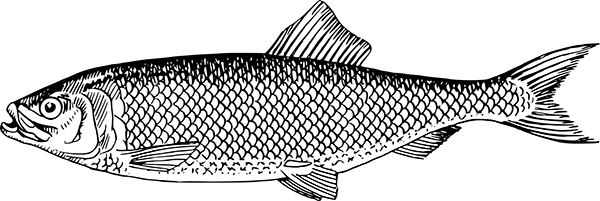On the development of klondyking, its changed meaning over time and thoughts on associations between herring fisheries and gold
KLONDYKING
Steam drifters increased the catching power of the herring fleet from the late C19th, inevitably creating the need for new markets. Steam power simultaneously provided an answer. Lowestoft fish merchant Benjamin Bradbeer identified the possibilities in supplying fresh herrings to the German market.
The German fleet mostly trawled, which damaged the herring. Bradbeer started sending boxes of fresh herrings, lightly salted and iced, by steamer to Altona in Hamburg, where they could pickle and sell their own prime products. Before long the Germans were employing their own buyers who worked the ports of Scotland and the East coast of England.
The Klondike Gold Rush of the late 1890s was contemporaneous with the development of this new fresh herring trade and gave it its name, the i of the region in the Yukon, for some unknown reason, becoming a y.
German buyers took herring from the ports where it was being landed, but they also took it directly from drifters at sea, packers working in the steamers that would take the boxes to Altona and Bremerhaven.
After the First World War, klondyking herrings picked up again. When the German mark collapsed, it played a role in the depression of the market for British cured herring, continuing throughout the 20s and 30s.
The association of herring fisheries with gold mines goes back to the C17th and beyond – an identification of the path they opened up to untold national wealth. The Herring Poet, John Lockman, was among the most enthusiastic promoters with The Shetland Herring and Peruvian Goldmine: A Fable, but it was a commonplace.
Whilst insisting, ‘These are our goldmines!’ the British pamphleteers saw adoption of the Dutch herring buss – large vessels with on board processing – as key to unlocking the gold.
The term, klondyking, these days tends to refer to the factory ships – large vessels with on board processing. It was particularly used for the often aging Eastern European fish processors which worked the Scottish coast after the collapse of the Soviet Bloc. With this meaning, klondyke, klondyking and klondyker appear in the Dictionary of the Scots Language as late C20th usages.
